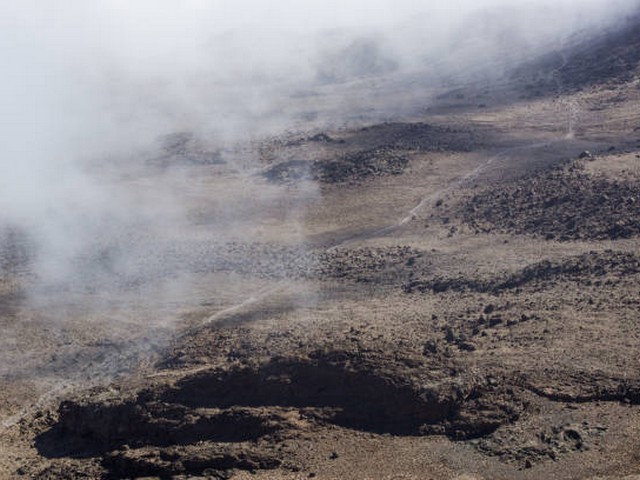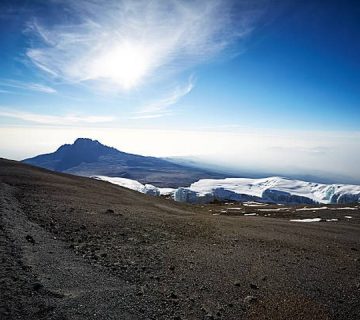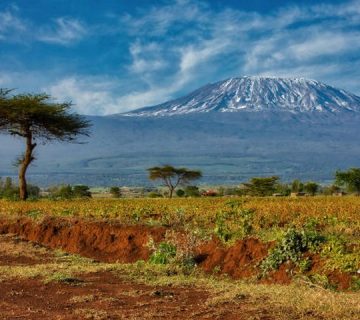How To Connect With Tanzanian Locals On Your Kilimanjaro Trek
Discovering the Heartbeat of Tanzania: Beyond the Mountain
As you prepare to conquer the majestic Mount Kilimanjaro, remember that the real treasure lies not just in the sprawling vistas from Uhuru Peak but also in the vibrant culture and the warm-hearted locals of Tanzania. Whether you’re an experienced trekker or a first-time climber, understanding how to connect with Tanzanian locals during your Kilimanjaro trek can transform your adventure into a truly life-changing experience. Here at Kilimanjaro Centre for Trekking and Ecotourism (KCTE), we believe that the spirit of Tanzania is its people. Let us guide you through the best ways to immerse yourself in local traditions, form genuine friendships, and create memories that go far beyond the climb.
Embrace the Local Language: Swahili Basics
Speak a Little, Smile More
While English is widely spoken in tourist areas, nothing bridges the gap between cultures like speaking a few words in Swahili. Tanzanians light up when you attempt to communicate in their language, even if it’s just a simple greeting. Start with "Jambo" (hello), "Asante" (thank you), and "Kwaheri" (goodbye). These words are your first step towards a meaningful connection.
Cultural Exchange Through Language
During your trek, your guides and porters will be more than happy to teach you additional phrases. This not only enriches your vocabulary but also opens up doors to deeper conversations and insights into their daily lives and customs.
Participate in Local Traditions
The Power of Music and Dance
Tanzania is a country rich in musical heritage. Engage with locals through the universal language of music and dance. Whether it’s the rhythmic Chagga dances or the soulful Maasai songs, participating in these cultural expressions can be profoundly connecting. Don’t be shy to join a dance circle or hum along a tune during your evening at the campsite.
Learn Through Local Cuisine
Food is a central part of Tanzanian culture. Show interest in local dishes like Ugali (a maize porridge), and perhaps, help in preparing a meal. This act of sharing a meal does more than just filling your stomach; it fills your soul with stories and laughter, creating bonds that last a lifetime.
Respect and Understand Local Customs
Dress Appropriately
Respecting local customs regarding dress codes shows your respect towards the community. While trekking, dress modestly and be mindful of the village norms when you visit. This sensitivity towards their customs not only shows your respect but also increases your acceptance among the local communities.
Participate in Community Projects
If your schedule allows, participate in a community project. At KCTE, we organize visits to local schools or community centers, where trekkers can interact with locals, understand their challenges, and contribute positively. These interactions are often the highlight of the trip for many climbers.
Sustainable Tourism: Support Local Economy
Choose Local
When you choose services that are locally owned, such as those provided by KCTE, you contribute directly to the local economy. Hiring local guides and porters, buying local products, and using local services help in sustaining the community’s economic well-being.
Understand the Impact
Be aware of your environmental and social impact. Practice principles of Leave No Trace to preserve the beauty of Kilimanjaro for future generations. Also, understand that every interaction has a potential impact on the local culture. Strive to make it a positive one.
Share Your Journey
Document and Share
Capture the moments of your journey, not just at the peak but also with the local communities. Sharing these stories when you return home spreads awareness and encourages others to undertake a similar respectful and immersive journey.
Reflect on Your Experience
After your trek, take time to reflect on the connections you made. This reflection not only deepens your understanding but also cements the relationships you have built with the Tanzanian culture and its people.
Why Trek with Kilimanjaro Centre for Trekking and Ecotourism (KCTE)?
Choosing KCTE means opting for a trekking experience that values and integrates local engagement with adventure. We pride ourselves on our ethical practices, support of local communities, and providing authentic cultural experiences that stand apart from mere tourist interactions. Connect with us to make your Kilimanjaro journey unforgettable, not only reaching the peak but also reaching into the heart of Tanzanian culture.
FAQ About Connecting with Locals During Your Kilimanjaro Trek
How can I learn basic Swahili before my trek?
Consider downloading language apps, watching tutorial videos, or even taking a basic Swahili course online. KCTE also provides a handy phrasebook as part of our pre-trek preparation materials.
What are some gifts I can bring for local communities?
Educational materials like books, art supplies, or sports equipment are always appreciated. Avoid gifts that may not align with local needs or cultural values. Consulting with your trek organizer, like KCTE, can help you choose appropriate and useful gifts.
Is it appropriate to tip our local guides and porters?
Absolutely! Tipping is an important aspect of showing your appreciation for the hard work and dedication of your team. Guidelines on how much to tip can be provided by KCTE to ensure fairness and adequacy.
Can I visit local homes or villages during my trek?
Yes, visits can be arranged respecting community boundaries and norms. KCTE coordinates with local villages to organize visits that are respectful and beneficial for both guests and hosts.
Embark on your Kilimanjaro trek not just as a climber, but as a guest eager to embrace and understand the rich culture of Tanzania. At KCTE, we are excited to be part of your journey of discovery and connection. Book your climb with us today and set forth on a trek that’s as much about reaching new altitudes as it is about deepening cultural ties.




